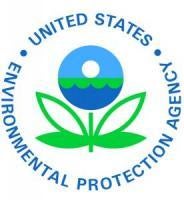WASHINGTON - Three officials of Ecological Systems, Inc. (ESI), an oil reclamation company that operated a centralized waste treatment facility in Indianapolis, IN, were sentenced in U.S. District Court, Southern District of Indiana for felony violations of the Clean Water Act. The prosecution stemmed from ESI's intentional discharges of untreated wastewater and stormwater from its facility directly into the Indianapolis sewer system.
"The Clean Water Act is designed to protect our nation's water resources, and the defendants' repeated attempts to hide the plant's capacity to handle the wastes that ESI accepted and excess rain water threatened those critical protections," said Randall Ashe, Special Agent in Charge of the EPA Criminal Investigation Division's Chicago Area Office. "Today's sentences prove that those who willfully circumvent our nation's laws and put Indiana residents and nearby homeowners at risk will be caught and prosecuted."
Joe Biggio, ESI's former Operations Manager and Executive Vice President, was sentenced to three years probation, a $15,000 fine, and community service, after having previously pled guilty to two counts of CWA criminal violations and one violation of the federal false statements statute, 18 U.S.C. 1001. Biggio's community service requires him to lecture graduate students seeking degrees in business management regarding his case and criminal conviction.
Mike Milem, former Operations Manager, was sentenced to six months home detention, three years probation, a $5,000 fine and community service, after he previously pled guilty to one criminal violation of the CWA. Similarly to Biggio, Milem's community service requires him to lecture students in Indiana colleges regarding his case and criminal conviction.
Mark Snow, former Lab Manager of ESI, was sentenced to three years probation, a $5,000 fine and 8 hours of community service per month during the duration of probation, after he also pled guilty to one criminal CWA violation.
In addition, all three defendants are prohibited from applying for any environmental license or employment in the environmental field without disclosing their felony convictions to any such licensing board or prospective employer.
The investigation began after the Indiana Department of Environmental Management received complaints from several Indianapolis homeowners that thick, oily wastewater was flowing into their yards from sewer manholes after a heavy rainfall on February 11, 2009. ESI was required to have sufficient storage capacity to handle wastewater from this type of wet weather event, but it did not. In order to deal with the excess wastewater, Mr. Milem and Mr. Snow decided to directly discharge untreated oily wastewater into the Indianapolis sewer system by pumping wastewater through hoses that bypassed ESI's treatment processes. As a result, the wastewater received no treatment, and was discharged into the sewer system leading to the City of Indianapolis' wastewater treatment plant. The discharge continued for approximately eight hours and resulted in a discharge of approximately 300,000 gallons of untreated wastewater. In the hours after this discharge, the oily sludge-like waste emerged from several sewer manholes downstream of the ESI facility, contaminating residential properties.
The subsequent investigation revealed that ESI had not been adequately treating the waste it took from customers for reclamation for a significant period of time, in part because major pieces of equipment in the treatment process, such as pumps, needed to be repaired or replaced, and because badly-needed storage space was not available at the facility. Investigators also determined that ESI had misrepresented to EPA and Indiana the storage capacity it had to handle such a rainfall event as the one that occurred on February 11, 2009.
Mr. Biggio, as the Executive Vice President of Operations, knew that ESI was hiding its noncompliance in several ways. Instead of reporting all of its wastewater samples to the city, as required by its permit, he "cherry picked" the data and only reported the "best" samples whose analytic results reflected lower concentrations of certain pollutants. Similarly, wastewater was collected after rainfalls, resulting in diluted samples that could be reported as "lower" pollution levels to the city. This practice of submitting false sampling results, along with making false statements to the authorities, attempted to disguise the fact that pollution discharge limits were being exceeded on a regular basis. The company's Spill Prevention, Control, and Countermeasure Plan stated it had millions of gallons more capacity than actually existed to handle spills and rain events.
The case was investigated by EPA's Criminal Investigation Division, the Indiana Department of Environmental Management, and the Indiana Department of Natural Resources. It was prosecuted by the Office of the United States Attorney, Southern District of Indiana.



 />i
/>i
